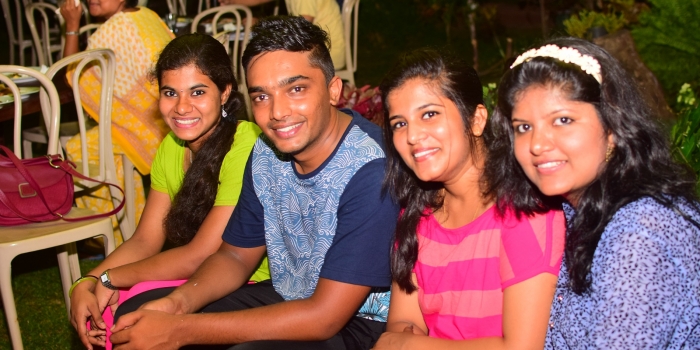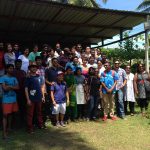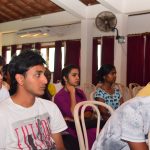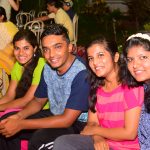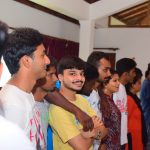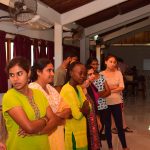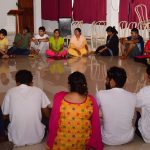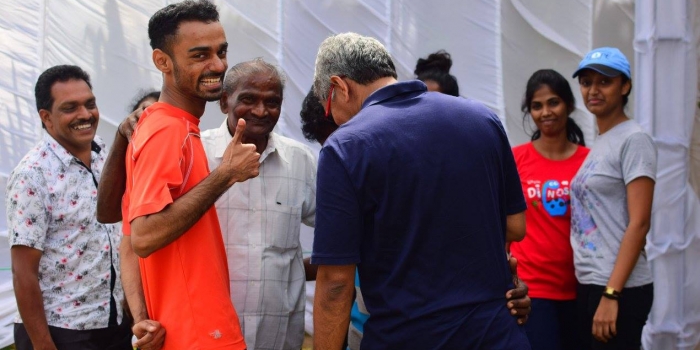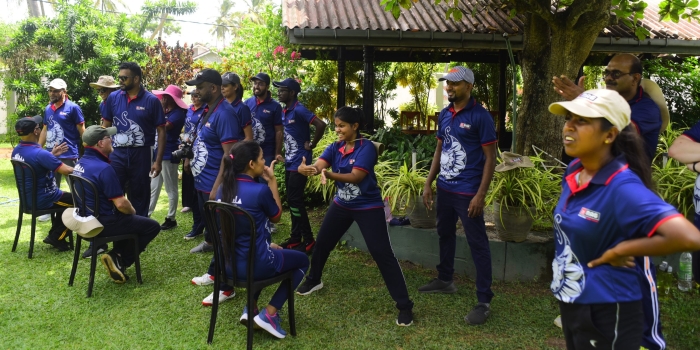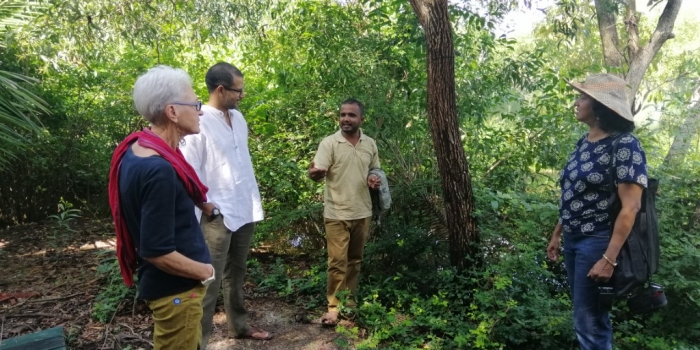Interactive Learning for Masters in Social Work students from Bangalore
Maya Jose is an energetic, bright, young woman in her second year reading for her Masters in Social Work.
The day after their arrival in Sri Lanka, 16 April 2016, Maya Jose and her friends and colleagues from St. Joseph’s College,Bangalore, sat with rapt attention listening to trainers of the Alliance Development Trust (ADT) as they imparted their knowledge in the field of social work at Sanctuary House (SH), the charity’s retreat and training center in Pamunugama .
Two weeks ago, across the Indian Ocean from Sri Lanka, Maya had seen a flyer on the college notice board. It advertised a study tour of Sri Lanka’s post war northern region. The advertised study tour to Sri Lanka, had looked like a good idea in furthering her understanding of hands on social work in a post-war environment.
BACKGROUND
The previous year, a group of 46, consisting of 6 lecturers and 40 students of this college, had enjoyed the first of such encounters through the ADT and the SH. They had recounted to Maya, stories of invaluable firsthand accounts of their encounter with communities that suffered with psychological and sociological difficulties of post war recovery in Sri Lanka. This second tour was based on the successful model of the previous year and Maya knew it promised to be an experience she would not encounter in India and would give her life long memories and lessons. She excitedly signed up with 42 other students of Social Work to set off on the second tour.
“Our students follow Medical Psychiatry or Community Development. Tomorrow our students can be policy makers and people who can bring about change. This experience is very useful for them to carry back”
said Dr. Lavinia a lecturer at the Department of Social Work on her second visit accompanying students to Sri Lanka.
“People working in the IT industry experience a different kind of stress. Bangalore is an IT hub and people are prone to give up easily. But once the students interact with people who have lost their limbs, husbands and other family members, the students take away a different perspective. It is about hope. How people in Jaffna, Mullaitivu and Kilinochchi are coming back and having hope for life again is amazing. That is what we carry back and why we are back here again. The present generation needs that – hope and positivity. This is what students need and what we have to give people” she added.
INTERACTIVE SESSIONS
In one session at the orientation programme held on 16 April, a trainer explained about the multiplication effect and how to maximize the reach of rolling out programmes using existing networks of partners.
Another programme officer introduced the students to the ADT’s work in the field of gender issues. Yet another introduced them to the work carried out in the area of Community Development Education, through role-play and another helped them understand the terminology used in development work.
As the day progressed, they were appraised of the length and breadth of the ADT’s development work through its five regional offices and seven satellite stations, in the island’s post-war environment and the ADT’s work with children. They were curious to compare notes with the situation back at home and rapidly fired questions on rights, issues, interventions and processes with the successive trainers.
Happy with the host country and ready to launch into their new adventure, Maya enthusiastically shared the knowledge she had gained through the orientation session.
Today’s session really broadened my perspective and everyone’s perspective. We learnt the difference between relief and development and we are looking forward to how we can actually connect with people and help them connect with resources”.
Although only 2 days in Sri Lanka, she was quick to congratulate Sri Lankans on their warm welcoming hospitality “Sri Lanka is a beautiful place. People are very welcoming and the food is great”. Most of all she was pleasantly surprised by the advances made by women who have been widowed or abandoned by their husbands to be recognized as the heads of households.
“In India we don’t have the concept of a Female-Headed Household. Here in Sri Lanka there is a defined term. It is a lawfully accepted position.
But in India even if the husband is not alive the woman does not assume the position of the head of household. Even if she has been abandoned nobody recognises her as the head of the household.
Maybe when we go on the study tour I can interact with them and find out their problems, coping strategies, culture, administration and policies related to women and mental health policies. Also look at what reforms could be brought in to make things even better” she anticipated eagerly.
After 2 days of orientation with the ADT trainers, the students and professors were anticipating their field tour. They were also immensely satisfied with the good foundation they received from the ADT before their impending journey. Prof. Akshay of theDepartment of Social Work who is visiting Sri Lanka for the first time had this to say in conclusion.
“There are two parts to education; academics and practice.
A classroom setting gives you only a small percentage of knowledge. 99% would be in the field.
The best things we can do for them is to let them experience the development and intervention at a grass-root level.
These things are not available in Bangalore. Refugee and the rehabilitation problems are totally different to the problems of someone working in an IT company. We’d like the students to get the most of this educational tour” he confirmed.




